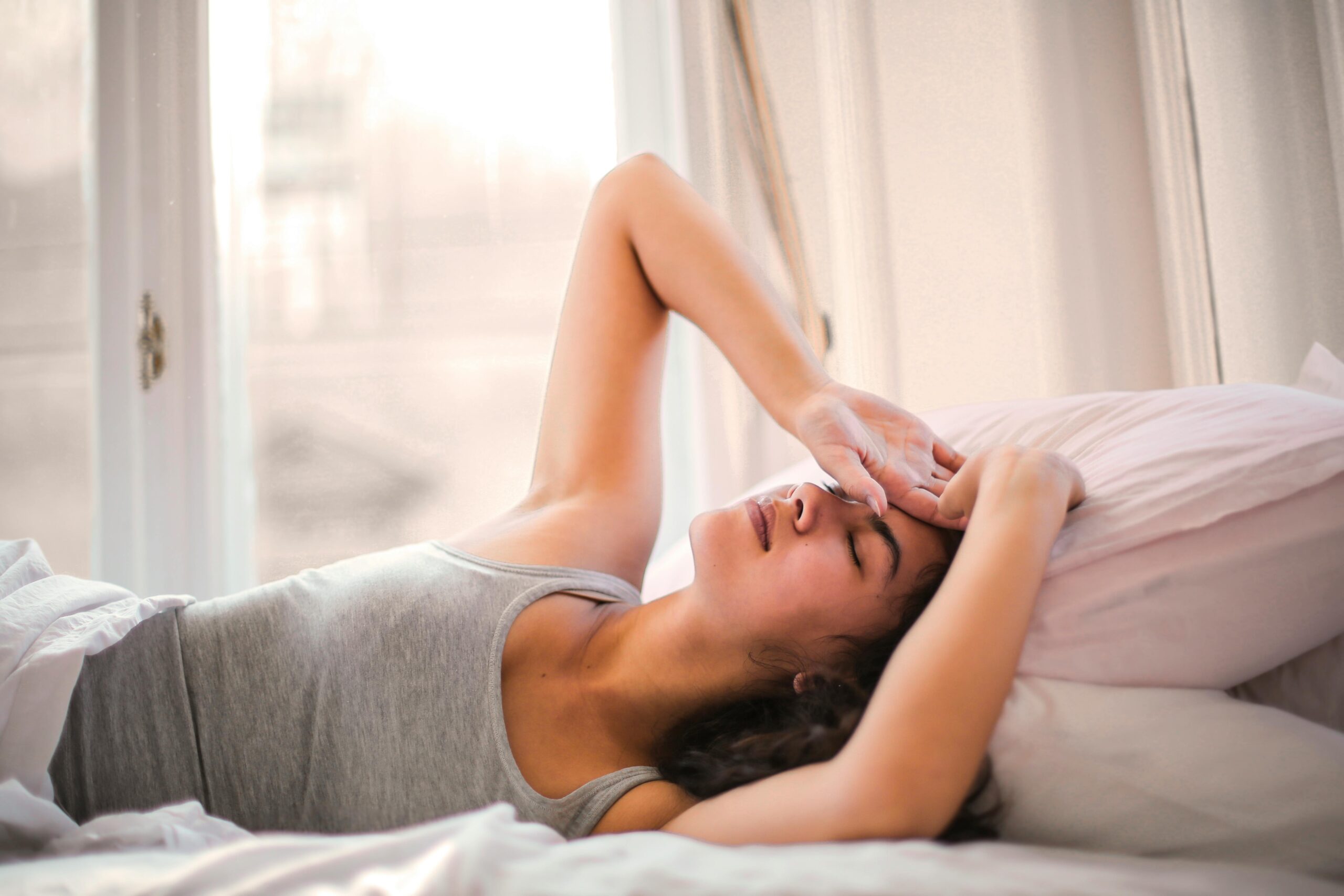
Overcoming Sleep Issues in Recovery: Tips for Californians
Medically Reviewed by:

Dr. Marco M. Zahedi
Medical Director, Compassion Recovery Center

Dr. Michael Majeski
Licensed Psychologist (LP), Compassion Recovery Center
Table of Contents
Introduction to Sleep and Recovery
Embarking on the journey of recovery from drug or alcohol addiction is a courageous step, one that demands strength, commitment, and a holistic approach to healing. A crucial, yet often underestimated, component of this healing process is sleep. Quality sleep is not just a luxury; it’s a biological necessity that plays a fundamental role in physical restoration, emotional regulation, and cognitive function – all of which are vital for individuals navigating the complexities of sobriety. When you’re striving to rebuild your life free from substance dependence, your body and mind are undergoing significant adjustments. Sleep acts as the cornerstone for these adjustments, helping to repair the damage caused by addiction and fortify your resilience against relapse. If you are finding it challenging to achieve restful sleep, know that you are not alone and support is available. You can reach out today to explore how specialized programs can help.
Individuals in early recovery often face a barrage of sleep issues. The very substances they are trying to leave behind have likely wreaked havoc on their natural sleep-wake cycles. From the torment of insomnia, where sleep feels like an elusive dream, to the unsettling grip of vivid nightmares or the oppressive weight of hypersomnia (excessive sleepiness), the path to restful nights can be fraught with obstacles. These disturbances are not mere inconveniences; they can significantly impact mood, increase irritability, impair judgment, and heighten cravings, making the already challenging recovery process even more arduous. Understanding these challenges is the first step toward “overcoming sleep issues in recovery.”
For those residing in California, the state’s unique lifestyle can present both opportunities and challenges concerning sleep. The vibrant, often fast-paced environment, particularly in areas like Orange County, combined with work pressures and social expectations, can inadvertently contribute to stress and irregular schedules. While the beautiful climate might encourage healthy outdoor activities that can promote better sleep, other factors like long commutes or the “always-on” culture can detract from it. This is where the accessibility and flexibility of telehealth services, such as those offered by Compassion Recovery Center, become invaluable. We provide remote drug rehab in Orange County and throughout California, ensuring that quality care is within reach, allowing individuals to address their recovery and sleep needs from the comfort and stability of their own homes. If you’re considering how to manage your recovery journey, it’s important to check insurance coverage to understand your options fully.
This guide aims to shed light on the intricate relationship between sleep and addiction recovery. We will delve into why sleep disturbances are so common, explore practical strategies to improve sleep quality, and discuss how specialized remote treatment programs can offer tailored support. At Compassion Recovery Center, we believe that a well-rested mind and body are powerful allies in your fight for lasting sobriety. We are committed to providing compassionate, evidence-based care that addresses all facets of your well-being, including the critical need for restorative sleep. Let’s explore how you can reclaim peaceful nights and strengthen your recovery journey.

Understanding Sleep Issues in Recovery
The connection between addiction and sleep is deeply intertwined, often creating a vicious cycle that can be difficult to break. Substance use directly impacts the brain’s chemistry and architecture, particularly the systems responsible for regulating sleep. Understanding these mechanisms is crucial for anyone facing “sleep disorders in addiction recovery” and seeking effective solutions. When you use drugs or alcohol, you’re essentially altering the delicate balance of neurotransmitters – the chemical messengers in your brain. These substances can artificially increase or decrease the activity of neurotransmitters like dopamine (related to reward and pleasure), serotonin (mood and sleep), GABA (calming), and norepinephrine (alertness), leading to significant disruptions in natural sleep patterns.
For instance, stimulants such as cocaine or methamphetamine flood the brain with dopamine and norepinephrine, leading to heightened alertness and an inability to sleep. Users may stay awake for days, and when the drug wears off, they often “crash,” experiencing profound fatigue and hypersomnia, yet the quality of this sleep is typically poor and unrefreshing. Conversely, depressants like alcohol or opioids may initially induce drowsiness. Alcohol, for example, can help you fall asleep faster, but it severely disrupts the later stages of sleep, particularly REM (Rapid Eye Movement) sleep, which is vital for emotional processing and memory consolidation. This leads to fragmented sleep and waking up feeling unrested. Opioids can suppress respiration, leading to sleep-disordered breathing and frequent awakenings. Chronic use of any substance fundamentally alters the brain’s ability to initiate and maintain healthy sleep, often leading to a state where the individual feels they need the substance to get any sleep at all, even if that sleep is of poor quality.
As individuals enter recovery and stop using substances, their brains begin the slow process of recalibrating. This period is often marked by a host of common sleep disorders:
- Insomnia: This is arguably the most prevalent sleep issue in recovery. Insomnia can manifest as difficulty falling asleep (sleep-onset insomnia), difficulty staying asleep (sleep-maintenance insomnia), or waking up too early and being unable to return to sleep. The anxiety, racing thoughts, guilt, and worry that often accompany early recovery can make the mind a very active and unwelcoming place at bedtime. The body is also adjusting to the absence of substances it had become dependent on to regulate (or dysregulate) sleep.
- Hypersomnia: While insomnia is common, some individuals experience hypersomnia, or excessive daytime sleepiness, despite sleeping for long periods. This can be a symptom of underlying depression, which frequently co-occurs with addiction (a Dual Diagnosis Treatment approach is often beneficial here). It can also be the body’s way of trying to catch up on a profound sleep debt accumulated during active addiction. However, this sleep is often not restorative.
- Nightmares and Vivid Dreams: Recovery can unlock a floodgate of suppressed emotions and memories. REM sleep, which is crucial for emotional processing, often rebounds in early recovery, leading to intensely vivid dreams and, frequently, nightmares. These dreams might involve past traumas, using substances, or feelings of fear and anxiety, further disrupting sleep and causing distress upon waking.
- Restless Legs Syndrome (RLS) and Periodic Limb Movement Disorder (PLMD): Some individuals in recovery, particularly from opioids or alcohol, may experience RLS, an uncomfortable urge to move the legs, especially at night, or PLMD, involuntary jerking of the limbs during sleep. These can make falling asleep and staying asleep very challenging.
The role of withdrawal symptoms in sleep disturbances cannot be overstated. Withdrawal is the body’s physiological and psychological response to the absence of a substance it has become dependent on. These symptoms vary depending on the substance but almost universally include significant sleep disruption. For example, alcohol withdrawal can cause severe insomnia, anxiety, tremors, and even seizures, making sleep impossible without medical support. Opioid withdrawal is characterized by muscle aches, agitation, anxiety, and RLS, all of which are potent sleep thieves. Stimulant withdrawal often leads to an initial “crash” with hypersomnia, followed by prolonged periods of depression, fatigue, and anhedonia, which can also affect sleep patterns negatively. Even cannabis withdrawal, often perceived as mild, can lead to irritability, anxiety, and difficulty sleeping. These “withdrawal symptoms sleep” problems can persist for weeks or even months, evolving into Post-Acute Withdrawal Syndrome (PAWS), where sleep disturbances can be a lingering issue. Addressing these symptoms is a key part of an effective Drug Rehab Programs or Alcohol Rehab Programs.
Recognizing that these sleep problems are a common and often physiological part of the early recovery process is important. It’s not a sign of personal failure but a consequence of the body and brain healing. With the right strategies, support, and sometimes medical intervention, restful sleep can be restored. Compassion Recovery Center offers Free Assessment options to help you understand your specific situation and how our telehealth services can support your journey to better sleep and lasting sobriety.
Tips for Overcoming Sleep Issues
Reclaiming healthy sleep is a journey, not an overnight fix, especially when “overcoming sleep issues in recovery.” It requires patience, consistency, and a multi-faceted approach. Fortunately, many effective strategies can significantly improve sleep quality. These techniques, often grouped under the umbrella of “sleep hygiene,” focus on behaviors and environmental factors that promote better sleep. Implementing these tips can make a profound difference in how you feel both physically and mentally as you navigate your recovery.
1. Establishing a Consistent Sleep Routine:
Our bodies thrive on rhythm. A consistent sleep-wake cycle is fundamental to regulating our internal biological clock, known as the circadian rhythm. Try to go to bed and wake up at the same time every day, even on weekends or days off. This regularity reinforces your body’s natural sleep-wake signals. While it might be challenging initially, especially if insomnia is severe, even aiming for consistency within a 30-60 minute window can help. Consider setting an alarm not just for waking up, but also as a reminder to start winding down for bed. This structured approach aligns well with the principles discussed in The Importance of Routine in Early Recovery, highlighting how routines build stability.
2. Creating a Sleep-Friendly Environment:
Your bedroom should be a sanctuary for sleep. This means optimizing it for comfort and minimizing distractions.
- Darkness: Darkness signals to your brain that it’s time to produce melatonin, the sleep hormone. Use blackout curtains or blinds if necessary. Even small amounts of light from electronics or streetlights can interfere with sleep. Consider an eye mask if your room isn’t completely dark.
- Quiet: Noise is a major sleep disruptor. If you live in a noisy environment, use earplugs or a white noise machine to mask disturbing sounds. White noise can provide a consistent, soothing auditory backdrop.
- Cool Temperature: Most people sleep best in a cool room, typically between 60-67 degrees Fahrenheit (15-19 degrees Celsius). Experiment to find what temperature is most comfortable for you.
- Comfort: Ensure your mattress, pillows, and bedding are comfortable and supportive. An uncomfortable bed can lead to tossing, turning, and pain, all of which disrupt sleep.
- Bedroom for Sleep and Intimacy Only: Avoid working, watching TV, or eating in bed. You want your brain to associate your bed primarily with sleep.
3. Limiting Stimulants and Electronics Before Bed:
What you consume and do in the hours leading up to bedtime significantly impacts your ability to fall asleep and stay asleep.
- Caffeine and Nicotine: These are powerful stimulants. Avoid caffeine (coffee, tea, soda, chocolate) for at least 4-6 hours before bed, or even earlier if you’re sensitive. Nicotine also disrupts sleep, so avoid smoking or vaping close to bedtime.
- Alcohol: While alcohol might make you feel drowsy initially, it fragments sleep later in the night, reducing restorative REM sleep. It’s best to avoid it altogether, especially in recovery.
- Heavy Meals and Sugary Foods: Eating a large meal or sugary snacks too close to bedtime can cause indigestion or blood sugar spikes that interfere with sleep. If you’re hungry, opt for a light, easily digestible snack.
- Electronics: The blue light emitted by smartphones, tablets, computers, and televisions suppresses melatonin production. Aim to power down all electronics at least an hour, preferably two, before bed. Engage in relaxing, screen-free activities instead. If you must use a screen, use a blue light filter or blue-light-blocking glasses. This is particularly relevant in our modern lives, and even virtual therapy sessions should be scheduled to allow for a wind-down period. For more insights, see What to pack and prepare for virtual rehab setting yourself up at home.
4. Incorporating Relaxation Techniques:
Stress and anxiety are primary culprits in sleep disturbances. Developing a pre-sleep relaxation ritual can help calm your mind and prepare your body for rest.
- Meditation and Mindfulness: Practicing mindfulness meditation, even for just 10-15 minutes before bed, can help quiet racing thoughts and promote a sense of calm. Guided meditations for sleep are widely available. Learn more about Mindfulness meditation practices for addiction recovery.
- Deep Breathing Exercises: Simple techniques like diaphragmatic breathing (belly breathing) can activate the parasympathetic nervous system, which promotes relaxation. Inhale slowly through your nose, feel your belly expand, and exhale slowly through your mouth.
- Progressive Muscle Relaxation: This involves tensing and then relaxing different muscle groups in your body, which can release physical tension and promote a state of calm.
- Warm Bath or Shower: A warm bath or shower about 90 minutes before bed can help you relax. The subsequent drop in body temperature after getting out can also trigger sleepiness.
- Reading: Reading a physical book (not on a screen) under soft light can be a relaxing way to wind down.
- Journaling: If worries are keeping you up, try writing them down in a journal before bed. This can help “empty” your mind and process emotions. Explore Journaling for recovery how writing can help you heal.
5. Importance of Regular Exercise and Its Timing:
Regular physical activity is excellent for sleep. Exercise can reduce stress and anxiety, deepen sleep, and help regulate your circadian rhythm. Aim for at least 30 minutes of moderate-intensity exercise most days of the week. However, timing is key. Vigorous exercise too close to bedtime (within 2-3 hours) can be stimulating for some people and make it harder to fall asleep. Gentle exercises like yoga or stretching in the evening are generally fine. Discover Exercise for sobriety how fitness can strengthen your recovery to learn more.
6. Managing Stress Through Therapy and Support Groups:
Underlying stress, anxiety, depression, or unresolved trauma are significant contributors to sleep problems in recovery. While the self-help tips above are beneficial, professional support is often necessary to address these deeper issues.
- Therapy: Cognitive Behavioral Therapy (CBT), particularly CBT for Insomnia (CBT-I), is highly effective for treating chronic sleep problems. It helps you identify and change negative thoughts and behaviors around sleep. Our Mental Health Treatment programs incorporate such therapies.
- Support Groups: Connecting with others in recovery through support groups (like AA, NA, or SMART Recovery) can reduce feelings of isolation and provide a space to share experiences and coping strategies, including those related to sleep. Compassion Recovery Center’s Virtual IOP Program includes group therapy components.
- Stress Management: Learning healthy ways to manage stress is vital. This can involve techniques learned in therapy, mindfulness, hobbies, or spending time in nature. Read about Stress management tips for people in recovery.
If, despite your best efforts with these strategies, your sleep problems persist or are severe, it’s important to seek professional help. Sometimes, underlying medical conditions or the severity of withdrawal symptoms might require more specialized interventions. You can contact us for a confidential assessment to discuss your sleep concerns and explore personalized treatment options.

Integrating Compassion Recovery Center Services
Navigating the challenges of recovery, including persistent sleep issues, often requires professional guidance and a structured support system. At Compassion Recovery Center, we understand that effective addiction treatment must be holistic, addressing not only the substance use itself but also co-occurring conditions like sleep disorders, anxiety, and depression. Our specialized telehealth addiction treatment services are designed to provide comprehensive care from the comfort and privacy of your home, making it easier to integrate recovery into your daily life, particularly for residents of California, including those in Orange County seeking a flexible Orange County IOP.
How Remote IOP Can Support Sleep Improvement:
Our Virtual IOP Program (Intensive Outpatient Program) offers a robust framework for recovery while allowing you to maintain your daily responsibilities. This model is particularly conducive to improving sleep for several reasons:
- Structured Support in Your Own Environment: By participating in therapy and group sessions remotely, you can implement sleep hygiene practices directly within your home environment. This contrasts with residential settings where the sleep environment is temporary. Learning to manage sleep in the place where you will continue your recovery long-term is highly beneficial.
- Addressing Root Causes: Our IOP includes individual and group therapy sessions that delve into the underlying causes of addiction and co-occurring issues like anxiety and depression, which are major culprits for sleep disturbances. By processing trauma, developing coping skills, and managing mental health symptoms, sleep often naturally improves.
- Education on Healthy Habits: A core component of our IOP is psychoeducation, which includes information on the importance of sleep, effective sleep hygiene techniques, and how lifestyle choices impact recovery and well-being.
- Reduced Stress of Commute and Disruption: For many, especially in busy areas of California, the stress of commuting to an in-person facility can be significant. Telehealth eliminates this, allowing more time for rest and reducing a potential source of anxiety that could interfere with sleep. The flexibility also means less disruption to work or family routines, which can be a source of stress. Learn more about how virtual IOP fits into a busy schedule.
- Accountability and Monitoring: Regular check-ins and therapy sessions within the IOP structure provide accountability, which can be helpful in maintaining new routines, including those for sleep. You can discuss your sleep challenges and successes with your therapist and peers. For tips on this, see Staying accountable in a virtual program: tips for progress.
Benefits of Online CBT Therapy for Managing Stress and Anxiety:
Cognitive Behavioral Therapy (CBT) is a cornerstone of modern addiction and mental health treatment, and it’s particularly effective for addressing sleep problems. CBT for Insomnia (CBT-I) is considered the gold-standard non-pharmacological treatment for chronic insomnia. Through our “online CBT therapy” services, clients can:
- Identify and Reframe Negative Thoughts: CBT helps individuals recognize and challenge unhelpful thought patterns related to sleep, such as “I’ll never be able to sleep without [substance]” or “If I don’t sleep 8 hours, I won’t function.” These thoughts often create anxiety that perpetuates insomnia.
- Modify Unhelpful Behaviors: Therapists work with clients to change behaviors that undermine sleep, such as spending excessive time in bed while awake, irregular sleep schedules, or relying on counterproductive coping mechanisms.
- Develop Relaxation Skills: CBT often incorporates relaxation training, stress management techniques, and mindfulness practices that can be used to calm the mind and body before sleep.
- Improve Sleep Efficiency: Techniques like stimulus control (associating the bed only with sleep and intimacy) and sleep restriction (initially limiting time in bed to consolidate sleep) are often part of CBT-I.
Role of MAT Treatment in Stabilizing Sleep Patterns:
For individuals recovering from opioid or alcohol addiction, Medication-Assisted Treatment (MAT) can be a critical component in stabilizing brain chemistry and reducing withdrawal symptoms, which are major contributors to sleep disruption. Our approach to “MAT treatment online” or as part of an Outpatient Detox program involves:
- Reducing Cravings and Withdrawal: Medications like buprenorphine or naltrexone for opioid use disorder, or naltrexone, acamprosate, or disulfiram for alcohol use disorder, can significantly alleviate the physical discomfort and intense cravings that often make sleep impossible in early recovery.
- Supporting Brain Healing: By mitigating the neurochemical chaos of withdrawal, MAT allows the brain to begin healing and re-regulating its natural sleep-wake cycles more effectively.
- Improving Treatment Retention: When withdrawal symptoms, including severe insomnia, are managed, individuals are more likely to remain engaged in their overall treatment program, including therapy and support groups.
Virtual Couples Counseling to Address Relationship Stressors Affecting Sleep:
Addiction often strains relationships, and the stress from marital or family conflict can significantly impact sleep for everyone involved. Our “virtual couples counseling rehab” services provide a platform for partners to:
- Improve Communication: Learn healthier ways to communicate needs, frustrations, and support for one another.
- Resolve Conflicts: Develop strategies for resolving disagreements constructively, reducing the tension that can keep individuals awake at night.
- Rebuild Trust: Address issues of trust that may have been damaged by addiction, fostering a more secure and supportive home environment conducive to rest. Rebuilding trust after addiction guidance for families and partners is a key focus.
- Support Each Other’s Recovery: Help partners understand the recovery process and how they can best support their loved one, including understanding the importance of sleep.
At Compassion Recovery Center, we are dedicated to providing personalized, accessible, and effective care. If you’re struggling with sleep issues as part of your recovery, we encourage you to Verify Insurance and get help now. Our team is ready to support you in finding restful nights and a stronger, more resilient recovery. Explore our Partial Hospitalization Program (PHP) and other treatment options to find the best fit for your needs.
California-Specific Considerations
Living in California, with its diverse landscapes, vibrant culture, and dynamic economy, offers a unique backdrop for the recovery journey. However, certain aspects of the California lifestyle, particularly in bustling regions like Orange County, can influence sleep patterns, both positively and negatively. Understanding these local nuances is important when “overcoming sleep issues in recovery” and can help tailor strategies for better rest. Furthermore, the state’s progressive stance on telehealth provides unparalleled opportunities for accessing care like Compassion Recovery Center‘s remote services.
Impact of California’s Climate and Lifestyle on Sleep:
California’s famed climate can be a double-edged sword for sleep.
- Positive Aspects: The generally mild weather encourages an active outdoor lifestyle. Regular exposure to natural daylight, especially in the morning, helps regulate the circadian rhythm. Activities like hiking, beach walks, or cycling, which are readily accessible in many parts of California, can reduce stress and promote better sleep quality as discussed in our blog on exercise for sobriety. The emphasis on health and wellness in many Californian communities can also be supportive.
- Challenging Aspects:
- Fast-Paced Lifestyle and Stress: Many urban and suburban areas, including Orange County, are characterized by a high-pressure, fast-paced environment. Demanding careers, long work hours, and the “hustle culture” can lead to chronic stress and anxiety, which are primary drivers of insomnia. For working professionals, finding balance can be tough, a topic we explore in High functioning but hurting addiction signs in working professionals.
- Commute Times: Traffic congestion in major metropolitan areas can mean long, stressful commutes. This not only eats into personal time that could be used for relaxation or sleep preparation but also adds to daily stress levels.
- Cost of Living: The high cost of living in many parts of California can be a significant source of financial stress, another factor known to disrupt sleep.
- Light and Noise Pollution: Densely populated areas often experience higher levels of light and noise pollution, both of which can interfere with creating a sleep-friendly bedroom environment.
- Environmental Factors: While not constant, events like wildfire seasons can lead to poor air quality and anxiety, impacting sleep. Similarly, earthquake anxiety, though often subconscious, can contribute to a state of hypervigilance for some.
- Social Pressures: Certain social scenes might involve late nights or substance use, creating triggers and making it challenging to maintain a consistent sleep schedule aligned with recovery goals. Navigating such situations is crucial, as discussed in Navigating social events without alcohol or drugs.
Utilizing Telehealth Services in California for Convenience and Accessibility:
California has been at the forefront of embracing telehealth, making services like “remote IOP California” and “virtual rehab California” widely available and accepted. This offers tremendous advantages for individuals seeking addiction treatment and support for sleep issues:
- Unmatched Convenience: Access therapy and support from anywhere with an internet connection. This eliminates travel time, childcare concerns, and the need to take extensive time off work, making treatment far more manageable for busy Californians. Our virtual IOP fits into a busy schedule, offering flexibility for parents and professionals.
- Increased Accessibility: Telehealth bridges geographical barriers. Whether you’re in a remote part of California or a dense urban center like Orange County, quality care from specialists at Compassion Recovery Center is accessible. This is vital for reaching underserved communities.
- Privacy and Reduced Stigma: Seeking treatment from the privacy of one’s home can reduce the stigma some individuals feel about attending a physical rehab facility. This can be particularly important for professionals concerned about their reputation.
- Comfort of Home: Healing in a familiar environment can be less stressful and more conducive to recovery for many. You can practice new coping skills and sleep strategies in the setting where you live every day.
- Integration with Daily Life: Telehealth allows for a smoother integration of treatment into daily life, rather than a complete disruption. This can make the transition back to regular routines post-treatment feel less jarring. You can set yourself up at home for successful virtual rehab.
Local Resources and Support Groups Available in Orange County (and accessible virtually):
While Compassion Recovery Center provides comprehensive remote treatment, we also encourage individuals to connect with local or virtually accessible community supports. For those in Orange County and throughout California, numerous resources can complement our telehealth services:
- Online 12-Step Meetings: AA (Alcoholics Anonymous) and NA (Narcotics Anonymous) offer a vast number of online meetings, many of which are “local” to Orange County or cater to specific Californian demographics. These provide peer support and a sense of community.
- SMART Recovery Online: SMART Recovery offers online meetings and resources based on cognitive-behavioral principles, which can be a great supplement to therapy.
- Local Mental Health Services: Orange County Health Care Agency and other local NAMI (National Alliance on Mental Illness) chapters can provide information on additional support services or community resources, some of which may also be accessible virtually.
- Specialized Support Groups: There are often specialized online groups for individuals facing specific challenges, such as co-occurring disorders or for particular demographics (e.g., LGBTQ+, professionals).
- Holistic Wellness Practitioners: California is home to many practitioners of mindfulness, yoga, acupuncture, and other holistic therapies that can support sleep and overall well-being. Many now offer online sessions.
By considering these California-specific factors and leveraging the extensive telehealth options available, individuals in recovery can more effectively address their sleep issues and build a stronger foundation for lasting sobriety. Compassion Recovery Center is committed to being a leading provider of “virtual rehab California,” offering empathetic and effective care tailored to the needs of Californians. Contact Us to learn how we can help you on your journey.
Conclusion: Embracing Restful Nights for a Stronger Recovery
The journey to lasting recovery from drug or alcohol addiction is a profound transformation, one that encompasses healing on all levels – physical, mental, and emotional. Throughout this guide, we’ve underscored the critical, non-negotiable role of quality sleep in this process. “Overcoming sleep issues in recovery” isn’t just about feeling less tired; it’s about equipping yourself with the resilience, clarity, and emotional stability needed to navigate the challenges and embrace the rewards of a sober life. Disturbed sleep, whether it’s insomnia, hypersomnia, or disruptive nightmares, can undermine your mood, cognitive function, and ability to cope with stress and cravings, significantly impacting your recovery capital. Conversely, achieving consistent, restorative sleep can be one of your greatest allies, fostering a positive feedback loop that strengthens your resolve and enhances your overall well-being.
We’ve explored how addiction profoundly disrupts the body’s natural sleep mechanisms and detailed common “sleep disorders in addiction recovery.” We’ve also provided a comprehensive toolkit of practical tips – from establishing consistent routines and creating a sleep-conducive environment to leveraging relaxation techniques and the benefits of exercise. These strategies, while simple in concept, require consistent effort and can make a tangible difference in your sleep quality and, consequently, your recovery progress.
For those in California, we’ve acknowledged the unique interplay between the state’s vibrant lifestyle and potential sleep disruptors, highlighting how the unparalleled accessibility of “telehealth addiction treatment” through providers like Compassion Recovery Center can offer tailored solutions. Our services, including remote IOP California, “online CBT therapy,” and supportive “MAT treatment online” options, are designed to meet you where you are, providing effective, evidence-based care from the comfort of your home. Whether you’re in Orange County or elsewhere in the state, our “virtual rehab California” programs offer a pathway to healing that integrates seamlessly into your life.
If you are struggling with sleep disturbances, please know that you are not alone, and it’s not a sign of weakness or failure in your recovery. These are common challenges, and effective help is available. We encourage you to take the courageous step of seeking professional support. The team at Compassion Recovery Center is dedicated to providing compassionate, individualized care that addresses the full spectrum of your needs, including the vital aspect of sleep. We can help you explore underlying issues, develop personalized coping strategies, and access treatments that can restore balance to your sleep and your life.
Your recovery is a journey worth every effort, and peaceful, restorative sleep is a right, not a luxury, on that path. Don’t let sleep problems derail your progress. Contact Us today for a confidential consultation, or take the first step by completing a start your free assessment. Let us help you build a foundation of health and well-being that includes the deep, healing rest you deserve. It’s time to get help for substance abuse and embrace the brighter, more rested future that awaits. Your path to recovery and restful nights can begin now.
What are common sleep issues faced during addiction recovery?
How can I improve my sleep while in recovery?
What role does therapy play in overcoming sleep problems in recovery?
Are there specific treatments available for sleep disorders in recovery?
How does California’s lifestyle affect sleep during recovery?
Struggling to balance life while needing support? Get expert virtual care and start your recovery journey, anytime, anywhere.
We’re learning more each day.
Researchers and doctors are making exciting progress in understanding mental health and addiction—bringing hope to millions.
Your genes don’t define you.
Genetics can play a part, but they don’t decide your future. Mental health is shaped by many factors, and healing is always possible.
There's no one-size-fits-all.
The right treatment often includes a mix of therapy, medication, and compassionate care—tailored just for you.


















